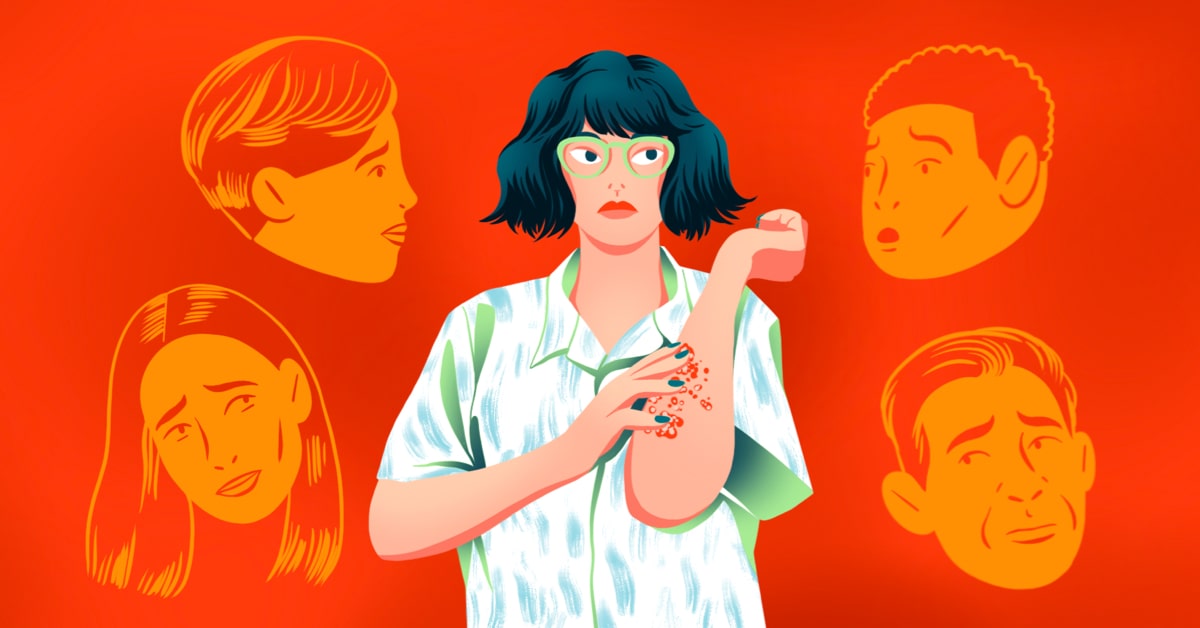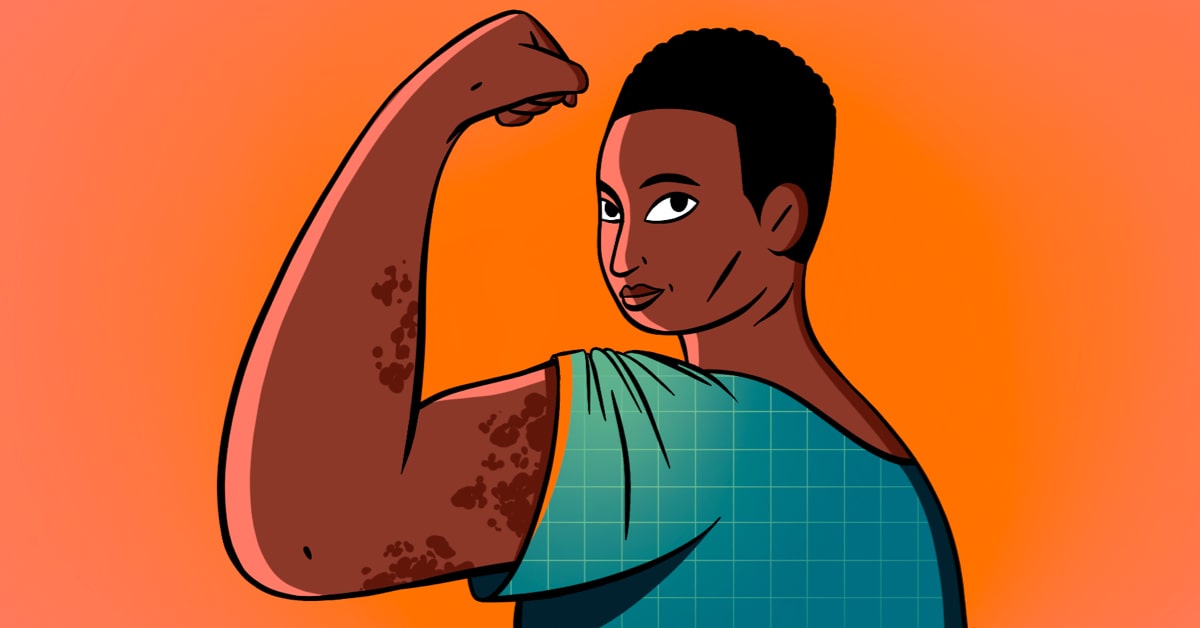What We Want the World to Know for World Psoriasis Day
Millions of people in the U.S. and around the world experience psoriasis and psoriatic arthritis, and there is no cure yet. 125 million people worldwide, 2 to 3 percent of the total population have psoriasis, according to the World Psoriasis Day consortium.1
Raising awareness of this condition allows others to understand its impact and prioritize its research. This is the exact purpose of recognizing World Psoriasis Day.
The global impact of psoriasis shouldn't go unnoticed.
 World Psoriasis Day occurs yearly on October 29. It's a day to not only bring attention to this chronic condition but validate the experiences of those who live with it daily. Intense pain, burning skin, uncontrollable itch, and visible patches of psoriasis throughout the body are just a few of the painful physical symptoms of psoriasis.
World Psoriasis Day occurs yearly on October 29. It's a day to not only bring attention to this chronic condition but validate the experiences of those who live with it daily. Intense pain, burning skin, uncontrollable itch, and visible patches of psoriasis throughout the body are just a few of the painful physical symptoms of psoriasis.
There is still so much that people don't know. Individuals who live with this condition are faced with so much stigma and hold on to deep-rooted shame.
To recognize the experience of over 125 million people worldwide and in honor of World Psoriasis Day, we asked our PlaquePsoriasis.com Facebook community: "What do you want the world to know about this chronic condition?”. Here's a look at what they had to say.
The obvious, of course: psoriasis is not contagious!
The specific cause of psoriasis is unknown. But research does show that genetics and the immune system are critical factors. Triggers include infections that activate the immune system, stress, skin injuries, and weather. No one can catch psoriasis by coming in contact with you or your skin.3
- “It’s most definitely NOT contagious and can be debilitating.”
- "It's not contagious."
Psoriasis greatly affects quality of life
If you have psoriasis, it may impact how you feel about yourself. The scales and itch are uncomfortable, physically and emotionally. Many people choose their clothes to cover the plaques. They may isolate themselves to avoid the gaze of others.4,5
 When plaques cover your hands or feet, movement and basic tasks are challenging. The pain is often severe and debilitating. This can lead to feeling depressed and discouraged.4,5
When plaques cover your hands or feet, movement and basic tasks are challenging. The pain is often severe and debilitating. This can lead to feeling depressed and discouraged.4,5
- “It affects all parts of your life.”
- “Debilitating and can give the patient really bad depression to the point of wanting to give up on life.”
- "No cure and detrimental to quality of life."
- “The pain is real, even when you can’t see it.”
Fatigue is a common psoriasis symptom
Living with psoriasis can feel draining. Many community members reported that they experience increased levels of fatigue. Fatigue is more than general tiredness. Fatigue is bone-weary exhaustion that extra sleep does not resolve.6,7
Inflammation that contributes to plaques can cause fatigue. Certain drugs for treating psoriasis, such as methotrexate, may also cause fatigue. Making plans is difficult when you cannot predict your energy level.6,7
- “It’s exhausting.”
- “Never know how you’re gonna feel from day to day.”
Finding effective treatment is challenging
There are many drugs approved to treat psoriasis. Some biologic drugs target specific parts of the immune system. They are often the most effective way to treat plaques. But they are costly.8
 Treatments also can change in effectiveness over time. You may respond well to one drug at first, and later your body stops responding. You must then restart the process of finding a way to manage the plaques and reduce flares.8
Treatments also can change in effectiveness over time. You may respond well to one drug at first, and later your body stops responding. You must then restart the process of finding a way to manage the plaques and reduce flares.8
- “It’s not easy or cheap to get the correct meds. We have to do trial and error with meds to see what works.”
- "Nightly oatmeal baths help, but overnight it all comes back."
- “Just when you think it’s improving, it comes back with a vengeance.”
Pregnancy is complicated with psoriasis
Pregnancy can be challenging with psoriasis. Many of the typical treatments pose a risk to the developing fetus. If plaques flare, people experience plaque discomfort on top of pregnancy discomfort.
In general, increased estrogen in the body leads to fewer flares during pregnancy. Estrogen levels drop the following birth, so flares are typically more common then. But all bodies are unique! Some in the community shared struggling more with their psoriasis during pregnancy.9
- “It gets worse when pregnant.”
Our community is committed to shattering the psoriasis stigma
 While it may not always seem the outside world understands, our community here at PlaquePsoriasis.com does. Our weekly newsletter is curated with practical tips, patient stories, treatment experiences, and more – all exclusively and uniquely for those managing life with different types of psoriasis.
While it may not always seem the outside world understands, our community here at PlaquePsoriasis.com does. Our weekly newsletter is curated with practical tips, patient stories, treatment experiences, and more – all exclusively and uniquely for those managing life with different types of psoriasis.
Thank you for showing up and being here exactly as you are. We hope you find some comfort and validation on this important day, World Psoriasis Day.
Join the conversation